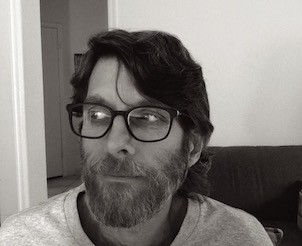DR. DAD — BENJAMIN NIESPODZIANY
/The boy's father was a harvest jar overflowing with ground beef and sock lint. The boy called him Dr. Dad. He sticky-tacked marathon medals to his office ceiling. The open-door policy windchimed his victories.
Dr. Dad was a desert locust. Spent his boy's childhood outside. While the boy drew snakes in dirt, Dr. Dad battled cows for high grass, up in the carob trees, shirtless, shouting about chocolate. He read sports.
Dr. Dad lasered warts, warned diabetics. Told golf jokes. Asked about updates on the wedding, on Kathy's First Communion. A heart throb is not always a good thing, he joked, wrote down the best cardiologist in town.
Dr. Dad told his son about an angry patient who had a hole in his foot. The man noticed the doom back in spring, spent four months with a marker making his wound a mouth. Fed it cigarettes, Mountain Dew, gin, gave it teeth, watched it grow.
Dr. Dad was Indiana's chief meteorologist small-talking tornadoes over Lidocaine and Coumadin prescriptions, his handwriting so bad the pharmacists needed a second opinion, half convinced the script read “amputate.”
The boy's father removed his own toes every night. With each pluck, he promised himself a better tomorrow. A jump-higher, fly-longer tomorrow. A listen and climb and tighten tomorrow. To proudly display every Froot Loops necklace his son made without eating it first.
Benjamin Niespodziany is a night librarian at the University of Chicago. He runs the multimedia art blog [neonpajamas] and has had work published in Ghost City Press, Pithead Chapel (forthcoming), HOOT Review (forthcoming), Occulum, and formercactus.












